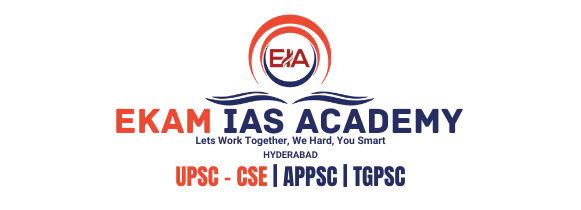Best UPSC Academy in Hyderabad

- This event has passed.
15-December-2023-Special Article
December 15, 2023 @ 8:00 am - 5:00 pm
WORK OF CONSULTANCY FIRMS WITH GOVERNMENT MUST BE REGULATED
Government initiatives in India, ranging from environmental projects to economic growth goals, increasingly rely on consulting support. This trend reflects a global shift towards leveraging external expertise. Recent reports reveal significant spending on global consulting firms by Union government ministries, prompting scrutiny. This raises important questions about the benefits and challenges associated with such engagements.
Benefits of Consultancy Firms in Public Policy Making:
Specialized Expertise:
- Consultants provide domain-specific knowledge crucial for effective program formulation and service delivery in various sectors.
- Areas like agriculture, transport, energy, and financial services benefit from external expertise.
Flexibility and On-Demand Skills:
- Dynamic policy challenges demand specialized technical skills available on a flexible, on-call basis.
- Consultants ensure the government accesses necessary expertise when required, especially in the context of digitization.
Diversity of Perspectives:
- External perspectives from consultants contribute diverse skill sets, fostering comprehensive and innovative problem-solving approaches.
- Valuable in addressing complex issues lacking clear-cut solutions.
Efficiency with Project-Specific Engagements:
- Project-specific engagements with predetermined end dates offer a cost-effective and efficient solution.
- Allows the government to address specific challenges without permanently increasing institutional load.
Challenges Posed by Consultancy Firms:
Hollowing out of Government Capabilities:
- Overreliance on consulting firms may deplete in-house government capabilities.
- Risk of civil servants losing essential skills, making the government excessively dependent on external expertise.
Excessive Dependence and Mission Creep:
- Risk of government officials becoming overly reliant on consulting teams even for routine tasks.
- Dependency may lead to mission creep, expanding the scope of engagements beyond their original intent.
Lobbying for Repeat Work and Policy Influence:
- Established relationships with government officials may lead to lobbying for repeat work by consulting firms.
- Concerns about consultants influencing policy decisions and directions.
Distortion of Public Policy Objectives:
- Involvement of consultants may skew public policy objectives, prioritizing recommendations not aligned with long-term public interests.
- Instances where consultants’ recommendations contradict intended policy outcomes.
Consultocracy and Diminishing Role of Public Servants:
- Growing influence of consultants within government structures may diminish the role of traditional public servants.
- Impacts historical functions and capabilities of government institutions.
Risk of Corruption:
- Intersection of consulting firms with government activities may create opportunities for corruption.
- Cases of corruption scandals globally underline the need for transparency and ethical practices.
Way Forward:
Regulatory Safeguards:
- Comprehensive regulation of consultancy engagements to ensure fairness and transparency in the onboarding process.
- Measures to curb rent-seeking behaviors and maintain ethical standards.
Disclosure of Value Added:
- Mechanisms for consultants to disclose the value they add to public policy initiatives.
- Transparency essential for accountability and public trust.
Knowledge Transfer and Capacity Building:
- Establish clear protocols for knowledge transfer from consultants to government officials.
- Focus on internal capacity building to ensure expertise gained contributes to long-term development.
Stakeholders Involvement:
- Engage citizens and stakeholders through surveys, forums, and participatory budgeting.
- Ensure government policies and programs are responsive, inclusive, and accountable.
Conclusion:
While consulting firms play a crucial role in modern governance, careful regulation, transparency, and a focus on knowledge transfer are imperative. Striking a balance between external expertise and maintaining the capabilities of public servants is essential for effective and ethical public policy outcomes. As India continues its journey towards development, the role of consulting firms should be integrated thoughtfully within a transparent regulatory framework to ensure optimal public service delivery.
Mains Question:
- Discuss the benefits and challenges associated with the increasing reliance of the Indian government on consulting firms for public policy initiatives. What regulatory measures and strategic approaches should be adopted to ensure the optimal integration of consulting firms within the governance framework (150 WORDS)

